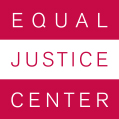Brings EJC’s overall history of wage recoveries for low-wage workers to $6.5 million
In 2013 the Equal Justice Center has had its most successful year ever prosecuting claims for unpaid wages on behalf of low-wage working men and women, recovering over $1.7 million dollars from employers who failed to pay their workers properly.
Helping low-wage working people enforce their basic workplace rights is at the heart of the EJC’s mission as non-profit law firm and employment rights organization. “Nothing we do is more important than empowering workers to engage in negotiation and litigation to vindicate their right to be paid minimum wage, overtime pay, prevailing wage rates, and the wages that have been contractually promised them,” says EJC Director, attorney Bill Beardall.
The Equal Justice Center has seen its wage and employment rights practice grow steadily from a small start in 2002 with two lawyers in Austin to a state-wide practice today that includes nine lawyers based in Austin, San Antonio, and now Dallas. With its record success this year, the total wage recoveries by EJC over that 11 year period has soared to 6.5 million dollars.
This is all the more remarkable since wage claims by low-wage workers are by definition comparatively small and don’t add up as fast they would for more highly paid employees. Some of the cases handled by EJC are large collective actions involving scores of plaintiffs, but most are smaller claims by one to four workers. In many cases the workers are owed just a few thousand dollars each, even though that may be a fourth or a fifth of their annual income.
Perhaps the most extraordinary aspect of EJC’s record is that such a large proportion of the working men and women the EJC represents are undocumented immigrants. EJC assists low-wage working people without regard to their immigration status. Its clients include U.S. citizens, lawful resident immigrants, undocumented immigrants and temporary foreign laborers (so-called “guest workers”). EJC has pioneered legal precedents and litigation methods that ensure they all get full and fair access to the courts regardless of immigration status.
“We think the best anti-poverty program is ‘a fair day’s pay for a fair day’s work,’” Beardall says. “This is especially true for the working people we serve who work full-time and still live below or near the poverty line.”
